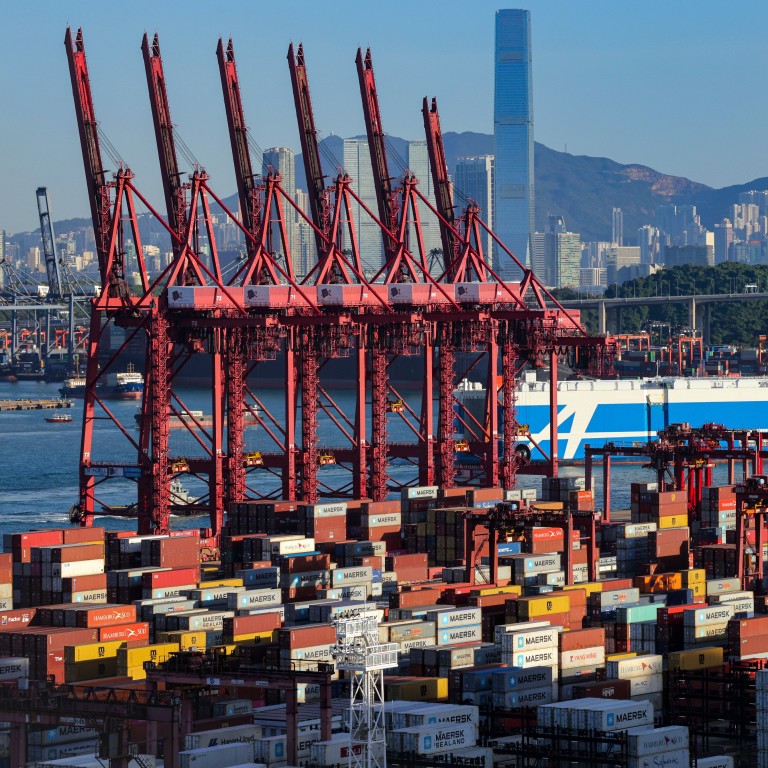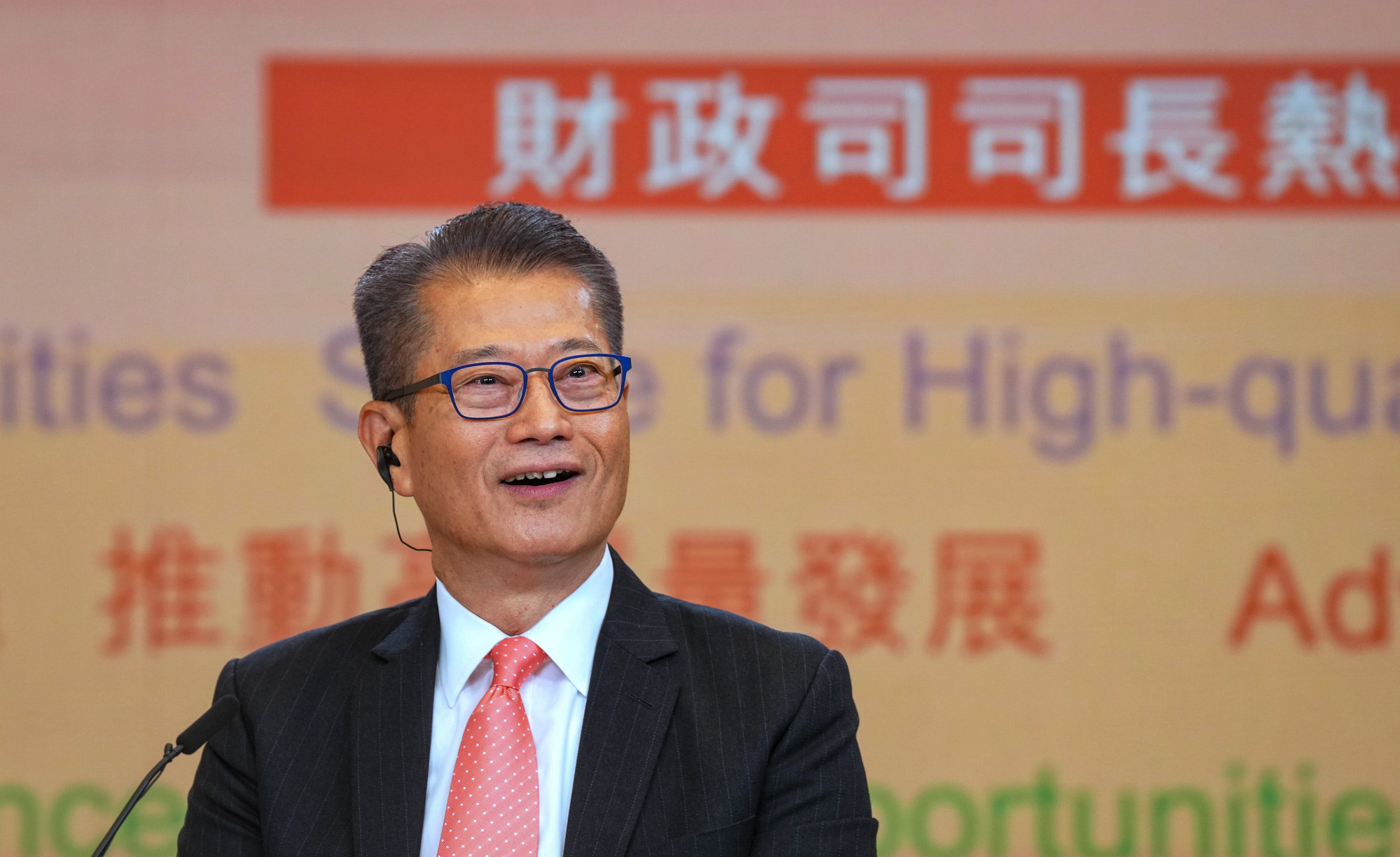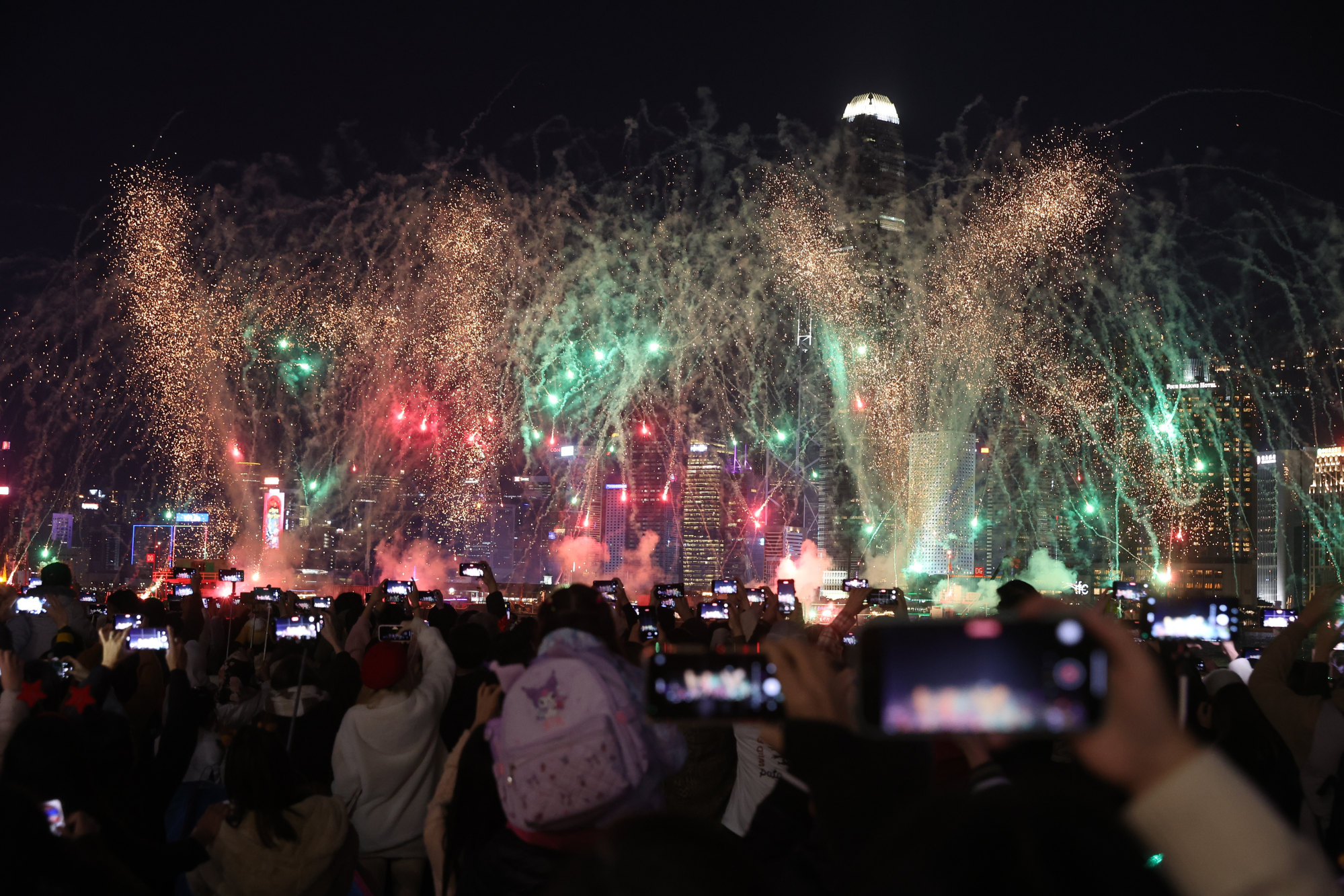
Hong Kong officials aim to lure medium-sized firms in mainland China by touting city’s professional services: finance chief
- Paul Chan says geopolitical tensions have created pressure for mainland companies that sell to European and US markets and which might be considering relocating
- ‘We will provide them with one-stop services, eliminating the need for them to consider other places but catering to all of their overseas business needs,’ he says
Hong Kong officials will visit mainland Chinese cities with booming private economies to lure medium-sized firms by emphasising the professional services offered in the financial hub that can help them expand their reach in overseas markets, the finance chief has said.
“We will provide them with one-stop services, eliminating the need for them to consider other places but catering to all of their overseas business needs,” Chan told a TV programme.

In the budget unveiled on Wednesday, the government proposed developing the city into a multinational supply chain management centre by offering “full-fledged and comprehensive professional support services to enterprises to meet their overseas business needs”.
The facilities provided under the proposal include consulting services that cover business operations, production and supply chain solutions, trade financing which ranges from export credit insurance to sharing of market updates, and corporate training such as handling compliance and labour protection matters.
Chan said rising geopolitical tensions had created pressure for mainland companies that sold to European and US markets. As a result, some firms were planning to move their production lines overseas.
“We want these companies, especially the medium-sized ones, to go to Hong Kong for overseas market solutions before they relocate their production lines elsewhere,” he said, describing Hong Kong as a tool to help such enterprises explore foreign markets.
But Chan did not disclose which mainland cities he and other officials would visit, only saying that the government would target those that had strong private economies.
Hong Kong can ‘absolutely’ repay bond offerings for public projects: Paul Chan
Shanghai, Shenzhen, Guangzhou, Beijing, Chengdu and Chongqing are the cities with the highest number of private companies, according to a survey released by business registration records website QCC.com in August.
The National Development and Reform Commission – China’s top economic planner – pledged in January to further clear the way for the private economy after announcing various policies last year to grow the sector and create jobs.
But official data showed that investment by private mainland companies declined by 0.5 per cent year on year in the first 11 months of 2023, a sharp contrast to state-owned enterprise investment, which rose by 6.5 per cent over the same period.
The finance chief also defended the government’s strategy to turn tourism, an industry that accounted for about 3.6 per cent of the city’s gross domestic product (GDP), as a catalyst for economic recovery in the short term.
Hong Kong’s finance chief set to remove some property cooling measures
He pointed to the three driving forces of the local economy – consumption, exports and investment – noting that geopolitics and high global interest rates had significantly impacted the latter two.
“So in a bid to stimulate consumption, [we should] have more tourists coming in and more internal consumption. They could contribute the most to the economy,” Chan said, adding that the sector’s economic impact should be measured by its effect on related industries such as dining and retail, as well as on the city’s reputation.
Chan also said that it would be difficult for other places to replicate the government’s monthly fireworks and drone shows, set to start in May, since they would occur against the unique backdrop of Victoria Harbour and have different themes.

The finance chief on his weekly blog revealed that several groups over the past few days had expressed an interest in sponsoring the fireworks and drone displays.
He added that restaurants and retailers had indicated that they were preparing promotional activities for the coming shows.
Meanwhile, tourism minister Kevin Yeung Yun-hung told a radio show the government hoped to surpass its target of bringing in more than 46 million visitors this year, 35 per cent up from 2023, but still only representing 70 per cent of the 65 million tourists recorded in 2018.
But Yeung said it would be too soon to set out any key performance indicators about tourists’ length of stay and amount of spending due to changing patterns in their behaviour.
“It’s not necessary to beat certain numbers of a particular year … We just hope to attract 46 million visitors this year who will spend at least 3.2 nights and HK$5,800 (US$740) in Hong Kong. This is our basic expectation for this year,” he said.
“We all hope to exceed this target, but right now it is difficult to make an accurate forecast or a goal. It may take one or two years to have a good grasp of the trend and identify the right measures to attract more tourists.”
With a robust rebound of mainland visitors coming to Hong Kong, officials would focus tourism promotion efforts on Southeast Asia and the Middle East this year, Yeung added.
“There has been a lukewarm response from Europe and America about travelling to Hong Kong,” he said. “We’ll continue to work harder on enticing travellers from these regions.”
Hong Kong’s deficit is expected to hit HK$101.6 billion (US$17.4 billion) this financial year, which would leave the city’s reserves at HK$733.2 billion, the lowest in a decade.
Chief Executive John Lee Ka-chiu said on social media that the latest budget had set the direction for the city’s future economic development.
“I believe that with unity and determination from all sectors of society, we can undoubtedly make Hong Kong’s economy even better than before and yield even sweeter fruits,” he said.
The city leader also commented on the peach blossoms at Government House, saying that their bloom for two consecutive years was an auspicious sign representing his administration’s “result-oriented approach”.
Additional reporting by Cannix Yau

